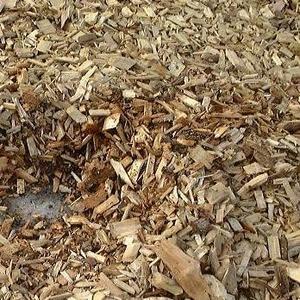Creating bio-oil from wood chips a reality at Battelle

November 8, 2013
BY Batelle
Battelle engineers and scientists have developed a mobile device that transforms unwanted biomass materials such as wood chips or agricultural waste into valuable bio-oil using catalytic pyrolysis. As currently configured, the Battelle-funded unit converts one ton of pine chips, shavings and sawdust into as much as 130 gallons of wet bio-oil per day.
This intermediate bio-oil then can be upgraded by hydrotreatment into a gas/diesel blend or jet fuel. Conversion of the bio-oil to an advanced biofuel is a key element of Battelle's research. Extensive testing of the bio-based gasoline alternative produced by Battelle suggests that it can be blended with existing gasoline and can help fuel producers meet their renewable fuel requirements.
An alternative use of Battelle's bio-oil is its conversion to a bio-polyol that can be substituted in chemical manufacturing for polyols derived from petroleum. Battelle's bio-polyols have been validated by a third-party polyurethane producer as a viable alternative.
Advertisement
Advertisement
Battelle is evaluating this one-ton-per-day system at its West Jefferson, Ohio, facility. The pilot-scale system is the culmination of Battelle's second-stage development of the mobile pyrolysis technology. In the first stage, which took place over the past four years, Battelle created a bench-scale machine that converted 50 pounds of woody waste per day, demonstrating the novel concept. The next step will be to work with a strategic partner/investor to produce a tenth-scale demonstration unit.
Currently, Battelle experts are using mainly pine waste in the transportable pyrolysis unit, although the high-tech machine can be modified to use other types of unwanted agricultural field residue known as stranded biomass, including corn stover, switch grass and miscanthus.
Additionally, all of the waste materials produced by the unit's process—liquid, solid and gas—have been taken into account. The liquid waste stream is water that can be safely recycled or disposed of, the solid char contains inorganics that can be used in fertilizers and the venting gas is monitored for safety.
Advertisement
Advertisement
Because of its small size, the pyrolysis unit is installed on the trailer of a flat-bed 18-wheel truck, making it mobile and thus transportable to the waste products. This feature makes it ideal to access the woody biomass that is often left stranded in agricultural regions, far away from industrial facilities. It's potentially a significant cost advantage over competing processes represented by large facilities that require shipment of the biomass from its home site.
“We have something quite compelling,” said Kathya Mahadevan, business line manager in Battelle's energy and environment at business. “We've got it producing oil and have proven viable applications for it. As we increase scale, we will be able to further refine efficiencies such as thermal consumption and yield.”
The Battelle bio-oil created by the mobile pyrolysis unit is similar to naturally occurring fossil oils harvested from underground. The hydrotreated, upgraded fuel qualifies for the renewable fuel standard (RFS) set by the U.S. EPA.
Related Stories
The USDA significantly increased its estimate for 2025-’26 soybean oil use in biofuel production in its latest World Agricultural Supply and Demand Estimates report, released July 11. The outlook for soybean production was revised down.
U.S. fuel ethanol capacity fell slightly in April, while biodiesel and renewable diesel capacity held steady, according to data released by the U.S. EIA on June 30. Feedstock consumption was down when compared to the previous month.
The U.S. EPA on July 8 hosted virtual public hearing to gather input on the agency’s recently released proposed rule to set 2026 and 2027 RFS RVOs. Members of the biofuel industry were among those to offer testimony during the event.
The USDA’s Risk Management Agency is implementing multiple changes to the Camelina pilot insurance program for the 2026 and succeeding crop years. The changes will expand coverage options and provide greater flexibility for producers.
The USDA’s National Agricultural Statistics Service on June 30 released its annual Acreage report, estimating that 83.4 million acres of soybeans have been planted in the U.S. this year, down 4% when compared to 2024.
Upcoming Events










